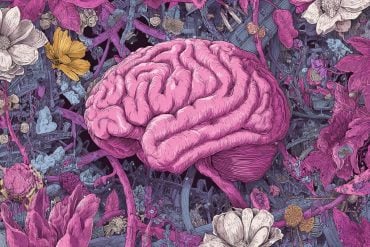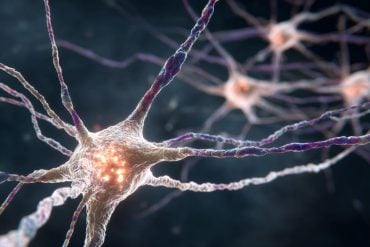Summary: Recent research reveals that individuals with Borderline Personality Disorder (BPD) exhibit distinct music preferences, favoring reflective and complex genres such as classical and jazz over intense, rebellious ones.
The study, involving 549 participants, highlights how the severity of BPD symptoms influences these preferences and the psychological functions of music, emphasizing its role in emotional regulation and social connectivity.
Music’s functions act as mediators in forming these preferences, suggesting that musical tastes among individuals with BPD reflect their internal psychological needs. This insight opens new avenues for tailored music therapy interventions, promising more effective therapeutic outcomes.
Key Facts:
- Individuals with higher BPD symptom severity show a clear preference for reflective and complex music genres, indicating a potential tool for emotional regulation.
- The study demonstrates that the functions of music, especially in fostering self-awareness and social bonds, are perceived differently by individuals with severe BPD symptoms.
- Music preferences in people with BPD are influenced by their psychological needs, making this a critical consideration for music therapy practices.
Source: Neuroscience News
In the intricate tapestry of human emotions and experiences, music stands as a universal language, capable of expressing the inexpressible and providing solace where words often fall short.
Its profound impact on our psychological well-being, mood regulation, and sense of connectedness with others is well-documented, yet the exploration of music’s role in the lives of individuals with Borderline Personality Disorder (BPD) reveals new layers of complexity and significance.
Borderline Personality Disorder, a mental health condition characterized by emotional instability, impulsive behavior, and often tumultuous relationships, affects millions worldwide. Individuals with BPD experience intense emotions and a persistent feeling of emptiness, leading to a continuous search for ways to cope and find stability.
In this context, a new study published in the Psychology of Music sheds light on how those with BPD engage with music, revealing distinct preferences and the psychological functions that music serves for them.
The study, spearheaded by Rafał Lawendowski of the University of Gdansk, delved into the music preferences of 549 individuals, 274 of whom exhibited symptoms of BPD.
By utilizing the Short Test of Music Preferences (STOMP) and assessing the psychological functions attributed to music, the research aimed to uncover how the severity of BPD symptoms interacts with music preferences and the underlying psychological needs music fulfills for these individuals.
Reflective Music for Emotional Regulation
One of the study’s key findings is the clear preference among individuals with higher BPD symptom severity for reflective and complex music genres, such as classical and jazz. This contrasts sharply with less interest in intense and rebellious genres like heavy metal or punk.
This preference suggests a search for genres that promote introspection, complexity, and emotional depth, possibly serving as a form of emotional regulation and self-awareness enhancement.
The Psychological Functions of Music
Beyond mere preference, the study illuminated how individuals with BPD perceive the functions of music differently, particularly in terms of self-awareness and social connectedness.
For those with more severe symptoms, music’s capacity to foster self-awareness and facilitate social bonds was less valued, indicating a potential disconnect or altered perception of music’s role in their emotional and social lives.
Music as a Mediator
Crucially, the research suggests that the functions of music can act as mediators in the relationship between BPD symptoms and music preferences. This mediation indicates that music preferences among individuals with BPD are not arbitrary but are deeply intertwined with their psychological needs and symptomatology.
The preference for or against certain genres may reflect an unconscious attempt to address internal psychological needs, such as the need for emotional regulation, identity formation, and social interaction.
Implications and Future Directions
This study’s insights are not only fascinating for those interested in the psychological impacts of music but also carry significant implications for therapeutic practices.
Understanding the specific music preferences and the psychological needs that music fulfills for individuals with BPD can inform more tailored and effective music therapy interventions.
By aligning therapeutic goals with the inherent music preferences and psychological functions it serves, therapists can potentially enhance the therapeutic outcomes for individuals with BPD.
However, the study is not without its limitations. The reliance on self-reported measures and the lack of consideration for ongoing therapy’s influence on music preferences highlight areas for further research.
A longitudinal approach, considering variables such as stress levels and the impact of therapy on evolving music preferences, could provide deeper insights into the dynamic relationship between BPD, music, and therapy.
This study not only broadens our understanding of the intricate relationship between BPD and music preferences but also underscores the therapeutic potential of music.
As we continue to unravel the layers of how music interacts with our psyche, particularly among those with BPD, we open new pathways for healing, understanding, and connection.
In the chaotic symphony of life, music offers a unique form of harmony for those navigating the turbulent waters of Borderline Personality Disorder, proving once again its unparalleled capacity to touch the deepest parts of our human experience.
About this BPD and music research news
Author: Neuroscience News Communications
Source: Neuroscience News
Contact: Neuroscience News Communications – Neuroscience News
Image: The image is credited to Neuroscience News
Original Research: Closed access.
“Borderline personality disorder symptoms relationship with music use: Investigating the role of music preferences and functions of music” by Karolina Kowalewska et al. Psychology of Music
Abstract
Borderline personality disorder symptoms relationship with music use: Investigating the role of music preferences and functions of music
Music preferences are molded with numerous personality variables, yet, this relation, as assumed in the study, may be mediated by functions of music expressing the psychological needs of the listener.
Not many studies are devoted to the music preferences of listeners with personality disorders, whereas, none investigate this topic among people with Borderline Personality Disorder (BPD). A correlational study that was conducted among 549 individuals (274 displayed BPD symptoms).
The main goal was to examine the extent to which the severity of BPD symptoms directly interacts with the following: (a) music preferences and (b) music function formation, and whether the functions of music can explain the mechanism through which BPD symptoms interact with music preference formation.
Using structural equation modeling (SEM), we demonstrated that the severity of BPD-spectrum symptoms is closely related to types of music preferred. In addition, BPD symptoms severity is substantially linked to the perception of the social relatedness and self-awareness functions of music, whereas emotional function seems to be independent of the BPD symptoms aggravation.
Finally, the functions of music can partly act as a mediator in shaping the mechanism of forming music preferences based on personality predispositions. Further music preference analyses among individuals with BPD is highly warranted.








